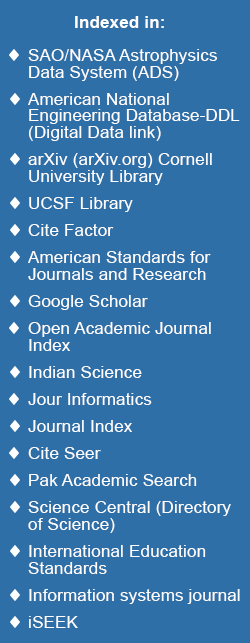ISSN : 2349-3917
American Journal of Computer Science and Information Technology
Unraveling the Magic of Algorithms: The Key to Solving Complex Problems
Lei Tan*
Department of Computer science Engineering, Southwest Jiaotong University, Chengdu, China
- *Corresponding Author:
- Lei Tan
Department of Computer science Engineering,
Southwest Jiaotong University, Chengdu,
China,
Email: leitan78@yahoo.com
Received date: February 06, 2023, Manuscript No. IPACSIT-23-16736; Editor assigned date: February 08, 2023, PreQC No. IPACSIT-23-16736 (PQ); Reviewed date: February 17, 2023, QC No IPACSIT-23-16736; Revised date: February 27, 2023, Manuscript No. IPACSIT-23-16736 (R); Published date: February 28, 2023, DOI: 10.36648/ 2349-3917.11.2.6
Citation: Tan L (2023) Unraveling the Magic of Algorithms: The Key to Solving Complex Problems. Am J Compt Sci Inform Technol Vol. 11 No.2:006.
Introduction
Algorithms are the building blocks of modern technology, quietly powering the digital world we live in. From search engines to recommendation systems, algorithms play a crucial role in solving complex problems efficiently and effectively. In this article, we will explore the concept of algorithms, understand how they work, and examine their impact on various domains. An algorithm is a step-by-step procedure or set of instructions designed to solve a specific problem or perform a task. It is like a recipe that guides a computer or a program to achieve a desired outcome. Algorithms can range from simple calculations to intricate procedures that tackle complex problems. To design an algorithm, the first step is to clearly define and analyze the problem at hand. This involves understanding the inputs, desired outputs, and any constraints or requirements associated with the problem.
Algorithm Types, Complexity and Efficiency
There are various algorithmic paradigms used to design efficient algorithms. These include: Greedy algorithms make locally optimal choices at each step to find an overall optimal solution. Divide and conquer algorithms break down a problem into smaller subproblems, solve them independently, and then combine the solutions to obtain the final result. Dynamic programming involves breaking down a problem into smaller overlapping subproblems and solving them in a bottom-up manner. Backtracking algorithms systematically explore all possible solutions by incrementally building a solution and undoing choices that lead to dead-ends. Algorithm complexity refers to the amount of time and resources required to execute an algorithm. Two key aspects of algorithm complexity are: 1) Time Complexity: Time complexity measures the number of operations or steps required by an algorithm to complete its execution. It helps analyze how the algorithm's performance scales with an increasing input size. 2) Space Complexity: Space complexity measures the amount of memory or storage required by an algorithm to solve a problem. It helps evaluate the algorithm's memory usage and scalability.
Impact of Algorithms
Algorithms have a profound impact on various domains and aspects of our lives. Let's explore some notable areas where algorithms play a significant role: Search engines like Google employ sophisticated algorithms to provide relevant search results based on user queries. Recommendation systems used by streaming platforms, e-commerce websites, and social media platforms use algorithms to personalize content suggestions based on user preferences and behaviors. Algorithms form the backbone of data analysis and machine learning processes. They enable the extraction of valuable insights from large datasets and facilitate the training of models to make predictions, classify data, and automate decision-making processes. Algorithms are utilized for optimizing processes and resource allocation in various fields. For example, in logistics, algorithms are used to optimize routes for deliveries, minimizing time and fuel consumption. In finance, algorithms automate trading strategies to maximize returns and minimize risks. Algorithms are the invisible heroes behind the efficient and effective solutions we witness in the digital age. They provide systematic approaches to solving complex problems and optimizing processes across various domains. Understanding the design principles, complexity analysis, and impact of algorithms empowers us to harness their power and make informed decisions in utilizing them to solve real-world challenges. As technology continues to advance, algorithms will remain at the forefront of innovation, shaping our future and opening up new frontiers of possibility.

Open Access Journals
- Aquaculture & Veterinary Science
- Chemistry & Chemical Sciences
- Clinical Sciences
- Engineering
- General Science
- Genetics & Molecular Biology
- Health Care & Nursing
- Immunology & Microbiology
- Materials Science
- Mathematics & Physics
- Medical Sciences
- Neurology & Psychiatry
- Oncology & Cancer Science
- Pharmaceutical Sciences
